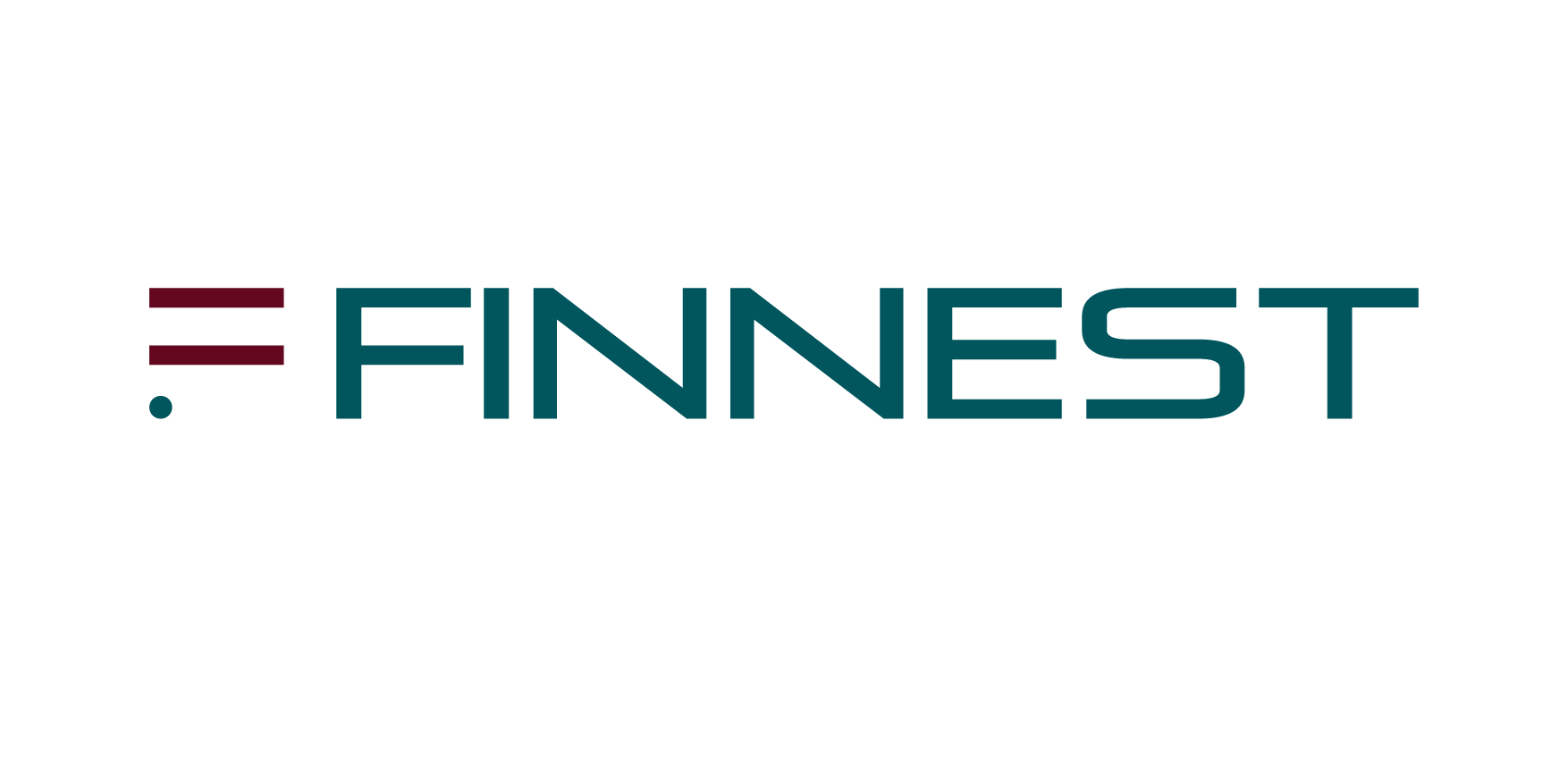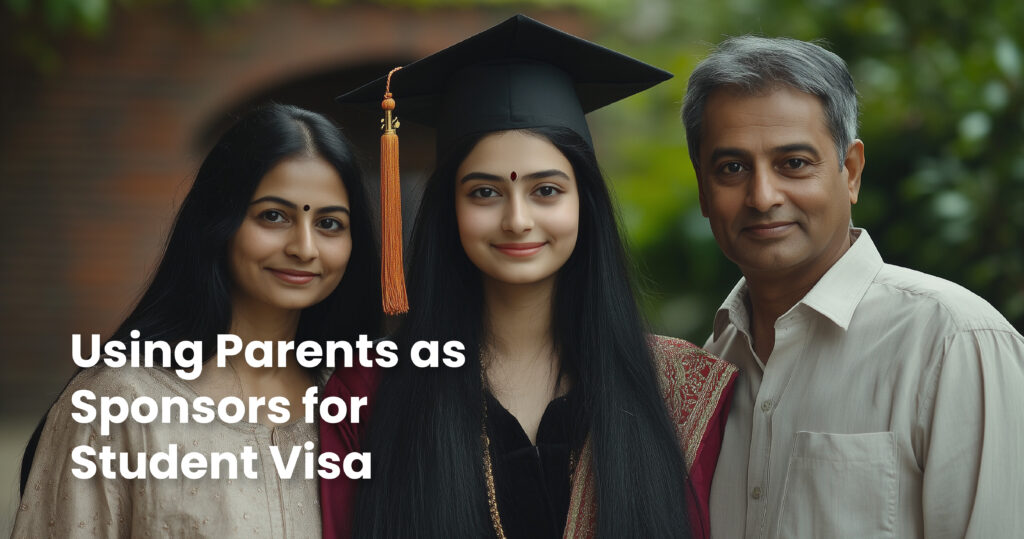Introduction
For many Indian students aspiring to study abroad, parental support is the foundation of their financial plan. Whether it’s covering tuition, living expenses, or helping with visa documentation, parents often step in as sponsors—both emotionally and financially.
But when it comes to student visa approval, simply stating that your parents will fund your education isn’t enough. Immigration authorities in countries like Canada, Australia, the UK, and Germany require clear, verifiable proof that your parents have the financial capacity to support you—and that the money is readily available for your education.
This guide explores everything you need to know about using parental funds for student visa approval—including required documents, country-specific financial thresholds, common mistakes to avoid, and how Finnest can help you navigate this critical step with confidence and compliance.
What Does “Parent as Sponsor” Mean in Visa Terms?
In the context of student visas, a parent acting as a sponsor means they are financially responsible for funding your education and living expenses during your stay abroad. Visa authorities expect documented proof that your parent (or legal guardian) has the financial resources to support your study and stay, especially when you’re not applying for a loan or holding a full scholarship.
Why Is This Important?
Visa officers assess financial stability as a major factor in granting student visas. They want assurance that:
- You won’t face financial hardship during your studies.
- You have a legitimate and consistent source of funding.
- Your sponsor has a strong financial background and can support the expenses long-term.
Common Sponsor Roles Accepted:
- Father or mother (most common)
- Legal guardians (with appropriate proof)
- Occasionally, close relatives like siblings or grandparents (accepted in some countries with stricter scrutiny)
Where It’s Commonly Accepted:
Countries like:
- Canada
- Australia
- United Kingdom
- New Zealand
- Germany
…all allow family-sponsored funding, provided documentation is clear and complete.
Required Financial Proofs When Parents Sponsor Your Education
When using your parent as a financial sponsor for your student visa, documentation is everything. Immigration officials are not just checking if the money exists—they want to know if the source of funds is legal, stable, and sufficient to support your full stay abroad.
Key Documents You’ll Need:
- Bank Statements (6–12 Months)
- Should show consistent income and savings—not recent lump sum deposits.
- Must match the financial requirements of the destination country.
- Should show consistent income and savings—not recent lump sum deposits.
- Income Tax Returns (ITRs) – Last 2–3 Years
- Proves the financial history and annual income of the parent(s).
- Especially crucial in countries like Canada and Australia.
- Proves the financial history and annual income of the parent(s).
- Salary Slips / Business Proofs
- For salaried parents: Recent salary slips or Form 16.
- For self-employed: Business registration certificates, profit/loss statements, etc.
- For salaried parents: Recent salary slips or Form 16.
- Affidavit of Support
- A notarized legal document where your parent declares they will fund your education.
- Some embassies may have a specific format—Finnest can help draft this correctly.
- A notarized legal document where your parent declares they will fund your education.
- Relationship Proof
- Usually your birth certificate showing both parent names.
- In absence of that, an affidavit or government ID may be accepted.
- Usually your birth certificate showing both parent names.
- Other Supporting Assets (if applicable)
- Fixed deposits, property documents, shares, or mutual funds can supplement the bank balance.
- Fixed deposits, property documents, shares, or mutual funds can supplement the bank balance.
Tip:
Embassies prefer liquid funds—readily available cash or equivalents. Overstating property value or showing sudden transfers into accounts can raise red flags.
How Much Money Should Be Shown (Country-Wise Breakdown)
Every country has its own minimum financial requirement to grant a student visa. This amount typically includes tuition fees, living expenses, travel, and insurance, and in many cases, must be demonstrated through liquid funds—which is where your parent’s sponsorship plays a key role.
Below is a country-wise breakdown of how much financial support you need to show when using a parent as a sponsor:
🇨🇦 Canada
- Tuition Fees: As per the institution (typically CAD 15,000–25,000/year)
- Living Expenses: CAD 10,000/year (CAD 11,000 for Quebec)
- Total Proof: CAD 25,000–35,000 minimum
- Preferred Fund Types: Savings account, GIC (Guaranteed Investment Certificate), or education loan
🇦🇺 Australia
- Tuition Fees: AUD 20,000–45,000/year
- Living Expenses: AUD 24,505/year (2025 rate)
- Total Proof: AUD 45,000–70,000+
- Additional: Must prove ability to afford travel and health insurance
🇬🇧 United Kingdom
- Tuition Fees: GBP 10,000–38,000/year
- Living Expenses: GBP 1,334/month (London); GBP 1,023/month (outside London)
- Total Proof: ~GBP 25,000–40,000
- Notes: Funds must be in the sponsor’s account for 28 consecutive days
🇩🇪 Germany
- Tuition Fees: Usually free or minimal
- Blocked Account Requirement: EUR 11,208/year
- Preferred Method: Funds must be placed in a blocked account in the student’s name
- Parental sponsorship must be supplemented with transfer of funds
🇺🇸 United States
- Tuition Fees: USD 20,000–50,000/year
- Living Expenses: USD 10,000–18,000/year
- Total Proof: ~USD 40,000–65,000
- Key Document: I-20 form states exact amount needed
Mistakes to Avoid While Showing Parent Funds for Student Visas
Using a parent as a sponsor for your study abroad journey is widely accepted—but only if done right. Even a small oversight in documentation or presentation can lead to visa rejections or delays. Here are some common mistakes students and their families make, and how to avoid them:
1. Showing Inadequate or Inconsistent Bank Balances
Many applicants show large last-minute deposits to meet the financial requirement. Embassies often view this as unreliable.
Instead: Maintain a healthy balance over time or show consistent income patterns.
2. Missing or Poorly Drafted Affidavit of Support
An affidavit that’s too generic or incorrectly formatted can be rejected.
Instead: Use country-specific formats and include your relationship, financial obligation, and duration of support clearly.
3. No Income Proof or Tax Returns
Just having money in the bank isn’t enough. Visa officers want to see where it came from.
Instead: Include recent salary slips, business financials, or IT returns to prove legal sources.
4. Unclear Relationship Proof
If your documents don’t clearly show that the sponsor is your parent, it can cause unnecessary complications.
Instead: Include a birth certificate or government document showing the parent-child relationship.
5. Overestimating Property or Non-Liquid Assets
While real estate and gold have value, they are not preferred for immediate expense coverage.
Instead: Focus on liquid assets like bank deposits, fixed deposits, or education-specific savings.
How Finnest Helps You Navigate the Process
At Finnest, we understand the emotional and financial responsibility that parents take on when sponsoring their child’s international education. That’s why we offer end-to-end guidance and support to ensure that your parent-sponsored financial documentation is compliant, credible, and country-specific—maximizing your chances of visa approval.
Expert Financial Documentation Assistance
Our team helps you compile the right set of documents—from customized Affidavits of Support to income proofs, bank statements, and relationship certificates—exactly as required by embassy standards.
Country-Specific Financial Templates
We provide pre-verified visa fund calculation templates based on your destination, ensuring you don’t overstate or underreport your sponsor’s financial strength.
Clean, Legal Show Money Arrangements
If you need help bolstering your parent’s funds for short-term documentation, we offer transparent and legal Show Money solutions through our partner network—completely tailored to immigration guidelines.
Personalized Consultation
Whether your parent is a salaried employee or a business owner, we offer case-specific consultations to structure your visa financials in the most compelling way possible.
End-to-End Visa Support
From financial preparation to documentation review and visa interview prep, Finnest ensures that both students and their sponsors are fully prepared and confident.
Make Parental Sponsorship Work with Confidence
Choosing your parent as your financial sponsor for a student visa is both common and effective—if done right. From providing long-term bank balance history to submitting proper affidavits and proof of relationship, every detail counts in proving your financial readiness to the embassy.
At Finnest, we specialize in helping Indian students and their families present strong, compliant, and stress-free financial profiles—whether it’s for tuition, cost of living, or visa fund requirements.
Let’s Build Your Sponsorship Strategy Together
Planning to use your parent as a sponsor for your study abroad dreams?
Get in touch with Finnest today for:
- Customized financial consultation
- Legal and verified show money options
- Complete documentation support
- Embassy-specific formatting and compliance checks
Don’t let paperwork or uncertainty hold back your visa approval.
Partner with Finnest and prepare with confidence.
FAQ Section
1. Can my parents sponsor my study abroad education?
Yes, most countries allow parents to act as financial sponsors for student visas. You’ll need to submit proper documentation like an affidavit of support, proof of relationship, income proofs, and bank statements.
2. What documents are required if my parent is my sponsor?
Common documents include a notarized affidavit of support, 6–12 months of bank statements, income proof (salary slips, tax returns), proof of relationship (birth certificate), and any other country-specific financial documentation.
3. How much money should my parent show for visa approval?
The required amount varies by country. For example, Canada typically requires CAD 25,000–35,000, while Australia needs AUD 45,000–70,000. Always check the latest embassy guidelines for your destination.
4. Can I use both my parent’s funds and an education loan?
Yes, combining personal sponsorship with an education loan is often encouraged, as it demonstrates diversified funding sources and increases your visa credibility.
5. How does Finnest help with parent-sponsored student visa applications?
Finnest helps by preparing sponsor-specific documentation, offering country-specific financial templates, legal show money solutions, and end-to-end visa funding guidance to maximize your approval chances.




